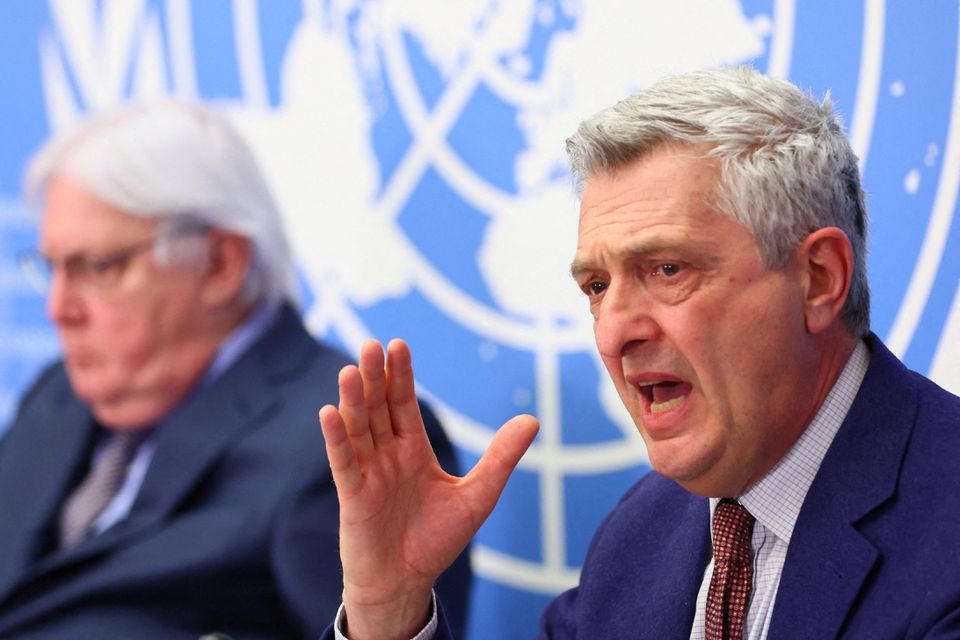UNHCR lauds PH for providing safe haven to refugees

Filippo Grandi, UN High Commissioner for Refugees. REUTERS FILE PHOTO
The United Nations High Commissioner for Refugees (UNHCR) has lauded the Philippines for serving as a safe haven for refugees and other vulnerable groups.
The Philippine Mission to the United Nations in Geneva, in a statement, said UN High Commissioner Filippo Grandi, during a meeting with Justice Secretary Jesus Crispin Remulla on Thursday, “recognized the many positive gestures from the Philippines, citing that the country has been a good example in the Southeast Asian region.”
Remulla, along with a Philippine delegation, is in Geneva for the 51st session of the UN Human Rights Council where he defended the government’s actions on the deadly drug war of former President Rodrigo Duterte.
“Mr. Grandi reiterated the need for solidarity of the international community in addressing humanitarian challenges, and said that the Philippines and the Association of Southeast Asian Nations (Asean) can contribute in this regard,” the mission said.
“The Philippines is carrying this tradition forward as it opened its doors to refugees, including women and children, in response to recent humanitarian crises,” the mission added.
Article continues after this advertisementIn 1937, the Philippines, at the behest of the United States, welcomed more than a thousand Jews who fled German Nazi expansion in Europe and they joined the small Jewish community in the Philippines.
Article continues after this advertisementDecades as asylum nation
In 1949, the country also granted asylum to about a thousand “White,” or anti-Bolshevik, Russians who were settled at Tubabao town in what is now Eastern Samar.
In the 1970s, the country also welcomed thousands of Vietnamese, who fled their country after the United States lost the Vietnam War. The Vietnamese were settled in Bataan, where some still live today.
Last year, the country opened its doors to the first Afghan refugees since the Taliban took control of Afghanistan. The government said it welcomed women and children fleeing conflict, persecution, sexual abuse and death.
Remulla and Grandi also discussed the Philippines’ humanitarian priorities and recent initiatives.
“This year alone, the Philippines has acceded to the 1961 Statelessness Convention, enacted the Foundling Act, established an interagency committee to protect persons of concern, and piloted the Complementary Pathways program for Rohingyas,” it added.
Remulla also reiterated the Philippines’ commitment to continue its long-standing tradition of contributing to the global humanitarian agenda.
READ: Philippines willing to receive Afghan refugees, asylum seekers